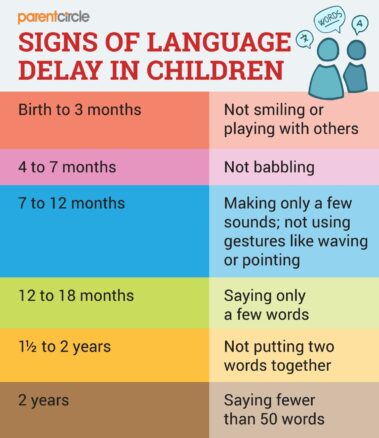All Services
Schedule Your Visit
Want to contact us directly? No problem.
We are always here for you.



- Aphasia
- ASSR Hearing Test
- Attention-Deficit Hyperactive Disorder (ADHD)
- Autism Spectrum Disorder (ASD)
- BERA Hearing Test
- Dysarthria
- Dysphagia Therapy
- English Series
- Expert Speech Therapy at Asha Clinic
- Feeding and swallowing disorders in Children
- Fluency Therapy
- Hearing Test
- Hindi Series
- Language Therapy
- OAE Hearing Test
- Oral Cancer
- PTA Hearing Test
- Speech and Language Developmental Delay (SLDD)
- Speech Sound Disorder
- Speech Therapy Classes
- Stammering
- Swallowing disorders in Adults
- Treatment for Cleft Lip and Palate
- Vertigo Assessment
- Voice Disorders
Speech and Language Developmental Delay (SLDD)

Speech and language development delay (SLDD) is a condition that encompasses significant challenges in acquiring and utilizing language skills across various aspects, including phonology, morphology, syntax, semantics, and pragmatics. These delays can persist throughout an individual’s life and may evolve over time.
When SLDD is the primary concern, meaning it is not accompanied by intellectual disabilities, global developmental delay, hearing or sensory impairments, motor issues, other mental disorders, or medical conditions, it is often termed as specific language impairment (SLI).
However, SLDD can also coexist with other conditions such as:
- Autism Spectrum Disorder (ASD)
- Intellectual Disabilities (ID)
- Developmental Disabilities (DD)
- Attention Deficit Hyperactivity Disorder (ADHD)
- Traumatic Brain Injury (TBI)
- Psychological/Emotional Disorders
- Hearing Loss
Each of these groups may display unique characteristics and behaviors, but they all share a common feature: language-related difficulties.
It’s important to recognize the strong connection between spoken and written language. Children facing challenges in spoken language often encounter difficulties when learning to read and write. Conversely, children struggling with reading and writing skills may also experience issues in spoken language, especially in higher-order language skills like expository discourse.
Moreover, some children with language disorders may encounter social communication difficulties. This arises because language processing, in conjunction with social interaction, social cognition, and pragmatics, contributes to effective social communication.
Treatment for speech and language disorders is crucial, and it often involves tailored interventions to address specific language domains and associated challenges. Early identification and intervention play a pivotal role in improving the long-term outcomes for individuals experiencing delays in speech and language development.
Diagnosing Speech and Language Developmental Delay
If you find speech and language developmental delay in your child, then search for a speech-language pathologist or a speech therapist near me and schedule a consultation. The medical professionals will thoroughly evaluate your child’s expressive and receptive language to identify a language delay and the type of issue your kid is experiencing. The exam will assess several verbal and nonverbal communication forms using standardized and informal methods.
After diagnosis, the experts will develop a treatment plan based on the information received. Your child’s treatment plan will most likely include speech and language therapy. If your child has underlying health concerns, the doctor may recommend further therapies.
SLDD Treatment in New Delhi
Speech and Language Developmental Delays can manifest in a variety of ways, from difficulty forming words and sentences to challenges with verbal expression and comprehension. However, for all speech and language development problems in Children, Asha Speech & Hearing Clinic in New Delhi provides effective treatment at reasonable prices. Our team contains top-rated speech therapists in India to evaluate each child’s unique needs and design personalized intervention plans. In specific, our clinicians will assist young patients overcome their hurdles by combining one-on-one treatment sessions, parent education, and collaborative work with teachers and other caregivers.
No matter whether a kid is struggling to interact with their peers in class or simply cannot find the perfect words to express their ideas and feelings, the specialists at Asha Clinic are dedicated to helping them reach their full communication potential. Mainly, our medical experts will aim to address the underlying causes of SLDD, employ proven strategies, create an encouraging, environment, and enable children to develop important speech and language abilities that will serve them well throughout their lives.
Empowering Leading Hospitals with Our Expert Services






Meet the Specialists Behind Our Success

DR. Shalabh Sharma
Ent Specialist
MBBS, MS, DNB, DLORCS (ENGLAND) FRCS (IRELAND) EAR NOSE & THROAT SURGEON.
DR. Asish Kumar Lahiri
Senior Consultant E.N.T.
DLO ( ) – University of Calcutta, MS ( ) – University of Delhi Senior Consultant at Sir Ganga Ram Hospital.
Vandana Bhardwaj
Rehabilitation Professional
Vandana Bhardwaj is a Rehabilitation Professional. She has an experience…
Priyanka Singh
Clinical Audiologist
A proficient clinical audiologist who is trained to evaluate hearing…
Vikrant Kumar
Clinical Audiologist
Vikrant Kumar is associated with Cochlear Implant Program since last…
Anju Kochhar
Speech Rehabilitationist
Anju is an internationally trained professional in Auditory Verbal Therapy…
Shivani Arora
Audiologist and Speech Therapist
A passionate professional with sharp clinical skills ensures correct diagnosis.…Trusted by Many Loved by Clients!
EXCELLENTTrustindex verifies that the original source of the review is Google. I've had a very positive experience with Asha Ma’am at her centre maam is a kind human being and truly dedicated to the well-being of my child. I’m extremely happy with the ongoing speech therapy sessions my son is receiving —i've seen noticeable improvement, and more importantly, he looks forward to his sessions. Maam , has been kind enough to take his sessions personally. Im a pediatrician myself , but i was wrong at so many places in handling my son, maam has guided me at all those points . Im blessed to have her as my son's teacher — Dr. Charu ChandwaniTrustindex verifies that the original source of the review is Google. I am very delighted to share this , I had a wonderful and knowledgeable experienced after taking the session from our respected therapist. I have seen the result in my child . After my personal experience i recommended them for the wonderful speech sessions. ThanksTrustindex verifies that the original source of the review is Google. Excellent counselling and services. Thankful to Asha ma'am and all the staff for helping us to get rid of worse tension we are facing for our child. Do precise testing and give accurate results. Thanks a lot.Trustindex verifies that the original source of the review is Google. Excellent faculty and professional effort to help toddlers and young kids improve speech clarity. Asha ma'am is a wonderful teacher and her years of experience speak when results are achieved. Young teachers like Puja are putting lot of effort to train kids under the mentorship of Asha ma'am.Trustindex verifies that the original source of the review is Google. Great improvement in my daughter's speech articulation issue. The teacher Kritika was very supportive and cooperative. Would highly recommend this clinic.Trustindex verifies that the original source of the review is Google. Very gud speech and therapist centre in the delhi. I'm very happy.Trustindex verifies that the original source of the review is Google. Very good improvement

